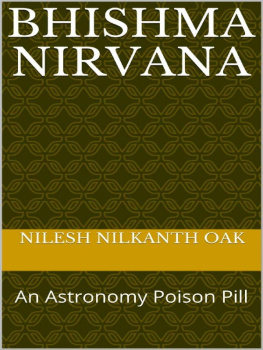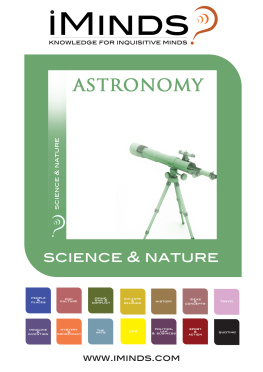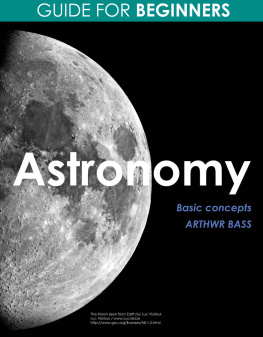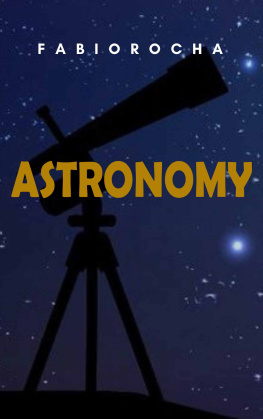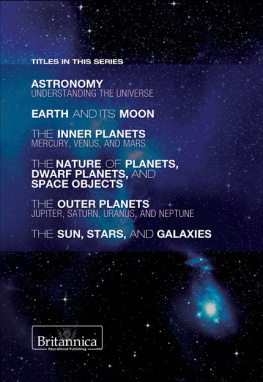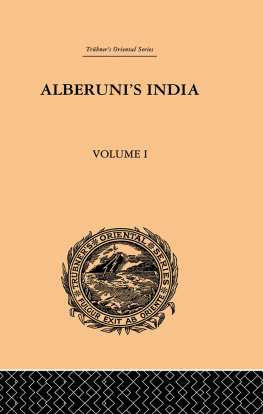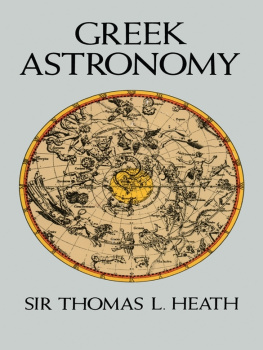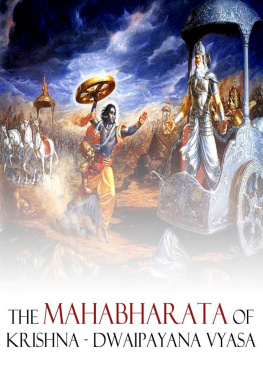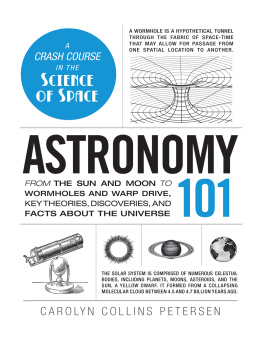Bhishma
Nirvana
Nilesh Nilkanth Oak
Bhima LLC
2018 by Nilesh Nilkanth Oak
All rights reserved.
ISBN-13: 978-0983034414
ISBN-10: 0983034419
All rights reserved. No part of this book may be reproduced or transmitted in any form or by any means, electronic, or mechanical, including photocopying or by any information storage or retrieval system as may be expressly permitted by the 1976 Copyright Act or in writing by the Author.
Cover Design: Rupa Bhaty
Editing: Stephanie Ellison
Printed in the United States of America.
To
Baba
Bhaskar Padmanabh Sahasrabudhe
(13 Dec 1935 23 Dec 2015)
Bhishma dedicated his life to Dharma
Baba dedicated his life to Nirmayakalpa TM
Both passed away one day after the winter solstice
ACKNOWLEDGEMENTS
Ashwini, my wife, who cheered me up through my writers block, read and re-read drafts of this book and gave crisp modifications.
Ms. Rupa Bhaty for designing the cover, multiple times, and Ms.. Stephanie Ellison for editing.
Abhi Shivadas and Chrystina Elle Passanisi for discussions and feedback.
Late Shri Prabhakar Phadnis (Appa) for being the devils advocate.
The influence of Acharya Vinoba Bhave, Sir Karl Popper, and Joseph Campbell has served me well through my journey, and my ongoing studies of Shad-darshanas (Nyaya-Samkhya-Yoga-Vaisheshika-Purva and Uttar Mimansa) have allowed me to visualize the depth of Indic traditions of experimentation, science, and logic, and their untapped potential.
The views represented in this book are my own and not necessarily of those who have been kind to me, directly and indirectly, in this endeavor.
Praise for:
The Historic Rama
BHARAT is REBORN, as its most famous son, Lord Rama, has finally found a throne on world's timeline! And it is an open challenge from Nilesh Nilkanth Oak to the world to try and dethrone Lord Rama from that throne if they think they are intellectually up to the task.
--
It was a fascinating ride. The pictures helped enormously. It is funny, logical, unapologetic, interesting, thought-provoking, and most importantly, it requires a higher amount of reader participation. This is not a book for reading before bed or in a leisurely mood. This book is best read with a pen and a paper nearby.
--
The book is gripping, fascinating and it is hard to put it down.
--
I had a wonderful evening today explaining to my family how the 24-hour day, the 7-day week, the names of the weekdays, the sequence of weekday names, are all based on a system founded on logic of astronomy observations. And the week had an Out-of-India migration just like the Zero! So next time some AIT-Nazi talks you down, ask him what weekday it is! Nilesh ji, a big thank you to you, Sudarshan Bharadwaj and Shri Suhas Gurjar.
--
The book is excellent. I also enjoyed the last appendix on the origins of weekday names and division. It seemed like a relief when I reached the appendix but ended up re-reading it in order to fully comprehend the gist of it.
--
Thank you so much for the work you have done to unearth the timelines of Ramayana. Reading the book gives me Goosebumps. I never had such an experience before. Hindus were blamed for not keeping track of time. Your research disproves it totally, clearly showing how the use of motion of celestial bodies serves as the ultimate timekeeper.
Praise for
When did the Mahabharata War happen?
The Mystery of Arundhati
You have done a great job. I requested astronomers to consider if Arundhati had gone ahead of Vasisth in 1971, when I published Swayambhu. But nobody cared. You are the first to do the great job!
- Dr. P V Vartak (Author of Swayambhu & Wastav Ramayana)
--
Grueling and unfaltering logic
--
I have to thank you for being the cause for a quantum leap in my own knowledge of general astronomy as well as Hindu astronomy / calendrical systems over a very short span of time. In some ways the effect of your book has some parallels with Rajiv Malhotra's Being Different, though in a very different context. RM never intended his book as a primer on Dharma/Hinduism - but nevertheless it introduced many aspects of Dharma in a light which would be new even to a practitioner. Similarly, even though I am sure you never intended your book to act as an exploration of key astronomical principles and Vedic astronomy, that has definitely been a key side benefit, at least from my perspective.
--
Your rigorous methodology was simply a pleasure to read and that got me started off on my efforts to dabble in archeoastronomy. Please accept my best compliments on such a wonderful book.
--
Indology has been populated by linguists and my respect for their work has gone down by several notches when I look at the shoddy assumptions many are prone to make. Science and rigor the way Nilesh Oak has used seems to be unknown to these Indologists. I bet that not one of those horse bone chewers can understand what Archeo-astronomy means. Their awareness extends to looking at Archeo-asses and saying it was not Equus caballus.
Contents
| Why write a book on Bhishma-nirvana? | |
| Evidence of Bhishma-nirvana | |
| Chronology Evidence | |
| Astronomy Evidence | |
| Astronomy Agama | |
| Constraints on the events of Bhishma-nirvana | |
| Epoch of Bhishma-nirvana | |
| Sensitivity Analysis | |
| Truthlikeness | |
| Conflicting Observations | |
| Superficial and manipulative claims | |
| Implications and Growth of Knowledge | |
Selected Bibliography | |
About the Author | |
Why write a book on Bhishma-Nirvana?
Why do I write books? Why do I think? Why should I be passionate? Because things could be different, they could be made better.
- Zygmunt Bauman
Before I published my first book, When did the Mahabharata war happen? The mystery of Arundhati, there were more than 130 different claims for the year of the Mahabharta war. These claims ranged from 7300 BCE through 500 BCE. Only one of them could be true, since the other plausible scenario was that none of them could be true. I proved why 5561 BCE is the only possible date for the year of Mahabharata war.
In a scientific endeavor, all claims, even well tested and validated or accepted by mainstream as true are still tentative and open to falsification. In fact, science understands that all our existing theories and claims are one data (evidence) point away from falsification.
Multiple Claims for the Year of Mahabharata War
Many researchers were repeating the traditional and dogmatic belief of 3102 BCE +/-200 years and claiming it as their own. Others were repeating claims of past researchers and claiming them as their own by boasting that they had tested and validated these claims. Additional researchers were putting forward new claims, not being satisfied with existing claims, and were tauting these claims, so arrived, to be the final word on the chronology of the Mahabharata war.
Majority of these researchers have shown not even an inclination of scientific methodology in arriving at their claims. I realized the urgent need to identify and to eliminate superficial and manipulative claims. This was not an easy task because these researchers had used differing sets of evidence (arbitrary or selective) and different theories (multiple conflicting theories by same researcher), and they had deliberately avoided evidence that would have falsified their claims instantaneously. They had presented their works in ways that made it difficult to critique and compare specific claims with those of other researchers. Since they lacked scientific acumen, the only recourse they had was to claim their works, dogmatically, as the final word on the subject, and thus refused to respond to the criticism and refused to participate in debates. This had resulted in 130+ claims, where each researcher considered his claim to be the only truth but refused to respond to criticism of their works.
Next page
